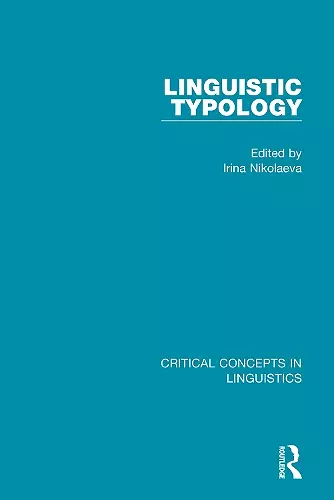Linguistic Typology
Format:Hardback
Publisher:Taylor & Francis Ltd
Published:24th Dec '18
Currently unavailable, and unfortunately no date known when it will be back

Typology lies at the centre of scientific research on language because it directly addresses the question which many consider to be the most important in the field: why and how are all languages similar and why and how do they differ from each other? There is growing body of evidence that the constraints on variation found in the languages of the world, i.e. the degree to which the grammatical properties are universal or language-specific, are not random: they follow certain predictable patterns which require explanation. Explanatory principles are typically derived from more general structural regularities of languages, appropriate assumptions about language development, language acquisition and human cognition, as well as functional principles that drive language use. They are therefore crucial to our understanding of language in its relation to human nature, history and culture.
Given its theoretical importance and the fact that almost any aspect of human language can be studied typologically, typology is a broad discipline which extends across all branches of linguistics. However, in the last few decades it has developed into a major area of research on its own. It would not be unfair to say that in recent years typology has been in a state of considerable growth but also some controversy, and that it has benefited from a variety of new exciting methods and approaches.
This new four volume collection on Linguistic Typology will be an essential source of reference for linguists of all theoretical convictions. It will provide a state-of-the-art overview of work on linguistic typology, its history, its methodology, theoretical foundations and major achievements. It will also examine the directions of current research and show how these reflect and inform work on linguistic theory, as well as related fields such as historical linguistics, language acquisition and language documentation. Various empirical issues that tend to preoccupy typologists will also be discussed. The publication will consist of the reprints of the most important works on linguistic typology published in the last few decades, and will begin with a critical introduction to the subject by the General Editor.
ISBN: 9781138342521
Dimensions: unknown
Weight: 453g
456 pages